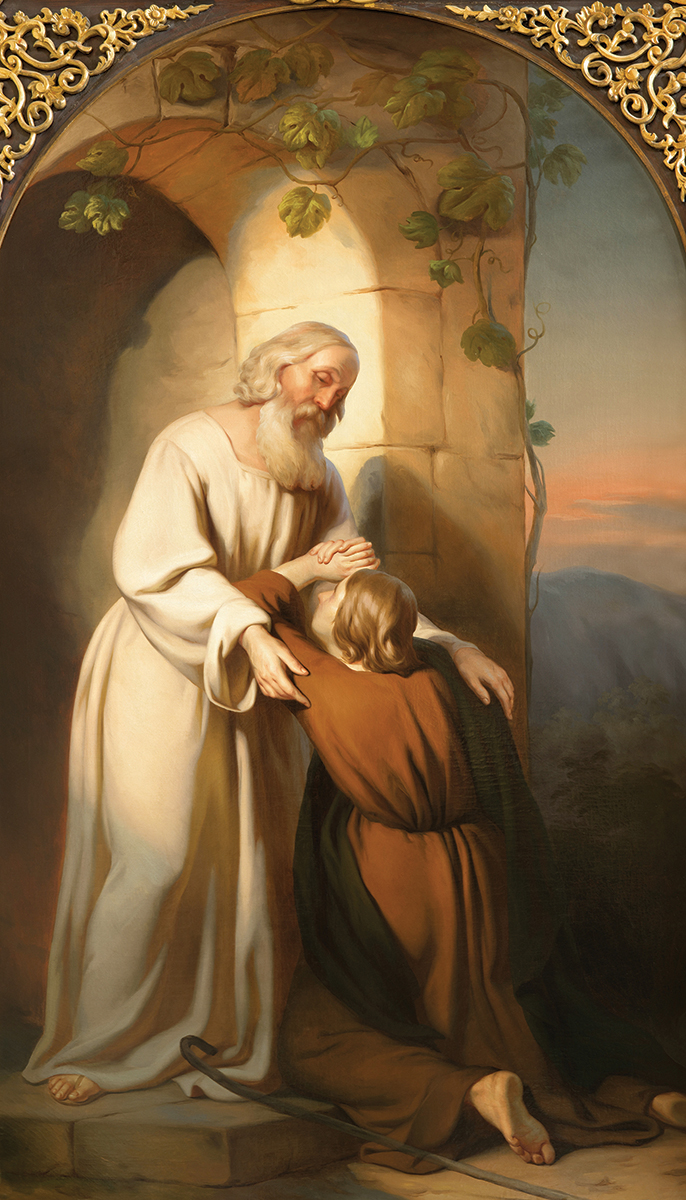The story of the prodigal son is one of the most powerful and endearing of the Lord’s parables. The wayward prodigal, patient father, and disgruntled older son are all characters who have resonated with readers down through the ages. Interestingly, this parable has something of a parallel version in the Old Testament book of Zephaniah, where the prophet recounts the sad tale of a prodigal nation.
Zephaniah’s ministry to the nation of Judah was set during a most tumultuous time. Although years of apostasy had been interrupted briefly by the reforms of King Josiah, Zephaniah’s ominous prophecies made it evident that the people would soon forsake the Lord and return to their idolatrous ways. This catastrophic path would lead directly to God’s hand of judgment.
A day of wrath is that day, a day of distress and anguish, a day of ruin and devastation, a day of darkness and gloom, a day of clouds and thick darkness (1:15).
The remarkable thing about Zephaniah’s little book is the fact that although God’s patience with His fickle people was coming to an end, He still gave the nation several more years to turn back to Him. Enough time to repent — or flee from the wrath to come.
Forsaken Father
Evidence of God’s mercy and love are tightly interwoven throughout Zephaniah’s grim prophecies. For the most part, God’s compassion and concern focus on the faithful remnant who are scattered throughout the land. To these devoted ones He offers words of love and comfort.
First, He tells them that during the day of their calamity, many will be hidden from destruction (2:3). History tells us, in fact, that many thousands did flee to neighboring nations when the Babylonian armies invaded their country.
God then promises that, although numerous Israelites will perish and many others will be taken into captivity, a faithful remnant will one day return to the land of promise (3:20). This event will be marked with great joy and celebration, a time when God will bless the nation and, in return, the people will serve Him with one accord.
Sing aloud, O daughter of Zion; shout, O Israel! Rejoice and exult with all your heart, O daughter of Jerusalem! The Lord has taken away the judgments against you; he has cleared away your enemies. The King of Israel, the Lord, is in your midst; you shall never again fear evil (vv. 14, 15).
The joy of the heavenly Father over the return of His exiled children reminds us of the response of the prodigal son’s father when his boy returned home. Jesus describes how the father ran to meet his son, how he gave him a robe and new shoes, killed the fatted calf, and prepared a great feast in celebration.
This joyous event is similar to the response of the heavenly Father in Zephaniah 3. First, He quiets their fears, then rejoices over them with loud singing (v. 17). For Christians, the thought of the God of the universe exulting over His people is a precious reminder of what all of His children can look forward to for eternity — the Lord rejoicing over His redeemed ones with songs of joy.
Prodigal
The similarities between the prodigal son and Zephaniah’s prodigal nation are striking. In both cases, the prodigals were guilty of idolatry, complacency, and pride. Whereas the people of Judah bowed down to Baal and Molech, the prodigal son was consumed with a self-indulgent desire to hijack his inheritance and live it up. These selfish passions were even more important than his father’s love and his own heritage. The apostle Paul equates such covetousness and evil desires with a form of idolatry: “Put to death therefore what is earthly in you: sexual immorality, impurity, passion, evil desire, and covetousness, which is idolatry” (Colossians 3:5).
Both prodigals returned home broken in spirit and humbled, having lost everything during their years of exile. In both cases as well, the father welcomed them back with true joy and without a word of recrimination.
“At that time I will bring you in, at the time when I gather you together; for I will make you renowned and praised among all the peoples of the earth, when I restore your fortunes before your eyes,” says the Lord (Zephaniah 3:20).
Older brother
To sense the presence of the older brother in Zephaniah’s prophecies, we need to move ahead in time to the return of the faithful remnant. We find these events recorded in Ezra and Nehemiah, where both writers describe in detail the returning exiles facing opposition from those already settled in the land.
Ezra states, “Then the people of the land discouraged the people of Judah and made them afraid to build” (4:4).
Nehemiah centers on three particular adversaries in this regard: Sanballat the Horonite, Tobiah the Ammonite, and Geshem the Arabian. These three leaders were greatly disturbed by the return of the exiles, and especially with Nehemiah’s efforts to reestablish the people by rebuilding the walls of Jerusalem.
While the people of Judah were living in exile, men like Sanballat were solidifying their position in the land, both economically and socially. They had grown in power, wealth, and reputation, but now that so many of the former inhabitants had returned, they feared that all they had accumulated was in jeopardy. Both Ezra and Nehemiah record how these individuals did everything in their power to reverse their perceived precarious situation.
This reminds us of the response of the older brother, who saw the prodigal as an unwelcome interloper, one who had gotten his just desserts and was now honing in on what was no longer rightfully his.
Three truths
When considering the parallels between these two stories, followers of Christ can claim at least three truths.
First, we have a heavenly Father who loves us and wants only what is best for us. There may be times when discipline is necessary to draw us back to Him, but it is always and only for our own good because of His eternal love for us (Hebrews 12:5, 6).
Like the prodigal son and prodigal nation, at times we will sin and drift away from our Father and lose sight of what His will is for our lives. In all cases, however, God is near and ever caring. He will never leave us or forsake us (Deuteronomy 31:6). Never will we drift so far from Him that He cannot reach out and shepherd us back to Himself.
At other times during their journey, some in the family of God seem determined to discourage us and undermine our relationship with the Father. The older brother should have been overjoyed to see the prodigal return from the dead, but instead he selfishly disparaged both his father and brother. As is often the case, such setbacks can come from those we least expect. Despite this, we know that God will always be by our side. When we go home to be with Him one day, He will rejoice over us with songs of joy.
No matter the age we live in, whether during the days of Zephaniah or this present moment in history, our heavenly Father is overjoyed to welcome home each and every prodigal who comes to Him. And we, His children, long for the moment when we will see our Savior for the first time and are welcomed into our kingdom home to live with Him forever.






